Rosalynn Carter left a legacy of mental health journalism, including at KUOW
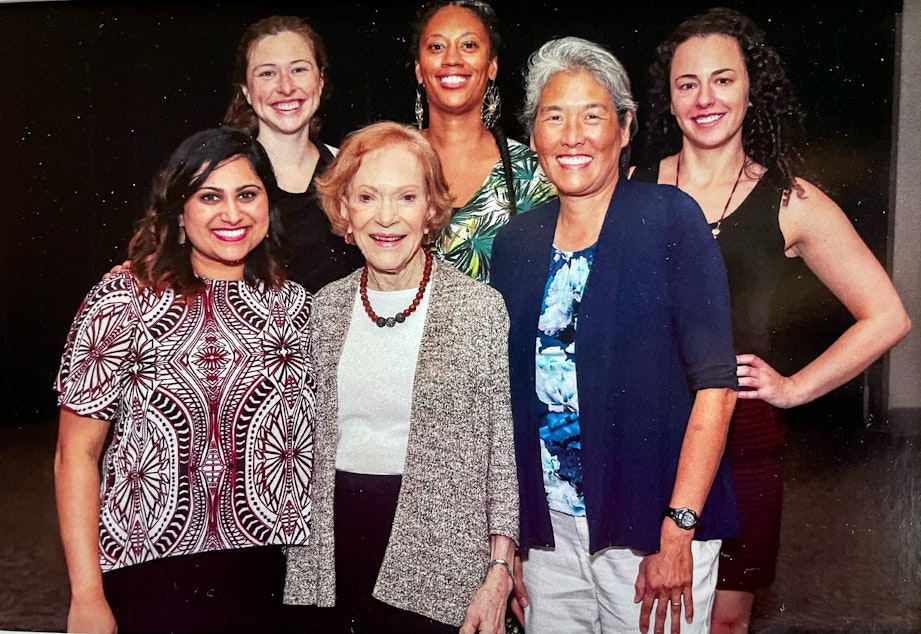
With the news of Rosalynn Carter’s passing, KUOW would like to acknowledge her tremendous legacy and how her life directly touched our newsroom, our audience, and our coverage of mental health.
In recent years, two KUOW journalists took part in Rosalynn Carter Fellowships for Mental Health Journalism & Media: Deborah Wang (2018-19) and Liz Jones (2021-22).
Mrs. Carter was a tireless advocate for mental health reform, and in our gratitude to her we want to take a moment to highlight this local journalism that she helped to bring forward.
I became one of Mrs. Carter’s 'fellas' and it changed my world — KUOW's Deborah Wang
I first met the late Rosalynn Carter in the fall of 2018, during a conference at the sprawling Carter Center in Atlanta. Mrs. Carter, then 91 years old, navigated the gathered crowd carefully using a hiking stick instead of a cane. When she walked up the stairs to the podium, she steadied herself holding the arm of a secret service agent.
In the room was the brand new class of Rosalynn Carter Mental Health Journalism Fellows. In her deep Southern accent, she charmingly referred to us as "my fellas." We were journalists from the US and abroad, there to learn from the program's mental health experts and journalism mentors. Of all the work the Carter Center did throughout the year—from promoting democracy to eradicating disease—this program, Mrs. Carter told us, was her favorite.
It’s the only program at the Carter Center that bears Mrs. Carter’s name.
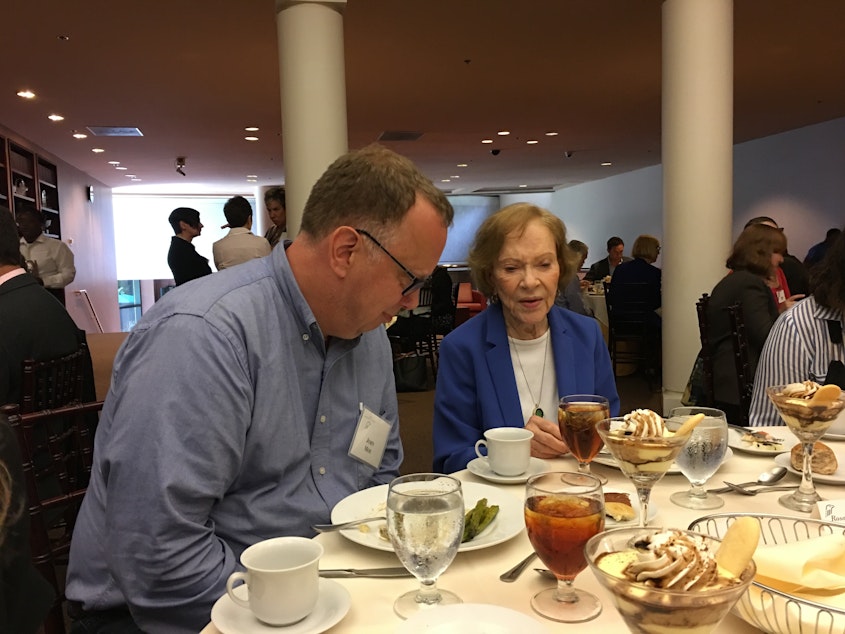
Sponsored
We learned that Mrs. Carter had been advocating for people with mental illnesses since the 1970s, when, as first lady of Georgia, she was moved by the plight of those who struggled to access decent mental health care. At the Carter Center, the journalism fellowship grew out of her belief that responsible, sensitive, and well-informed journalism about mental health can help reduce stigma, reform systems and improve people’s lives.
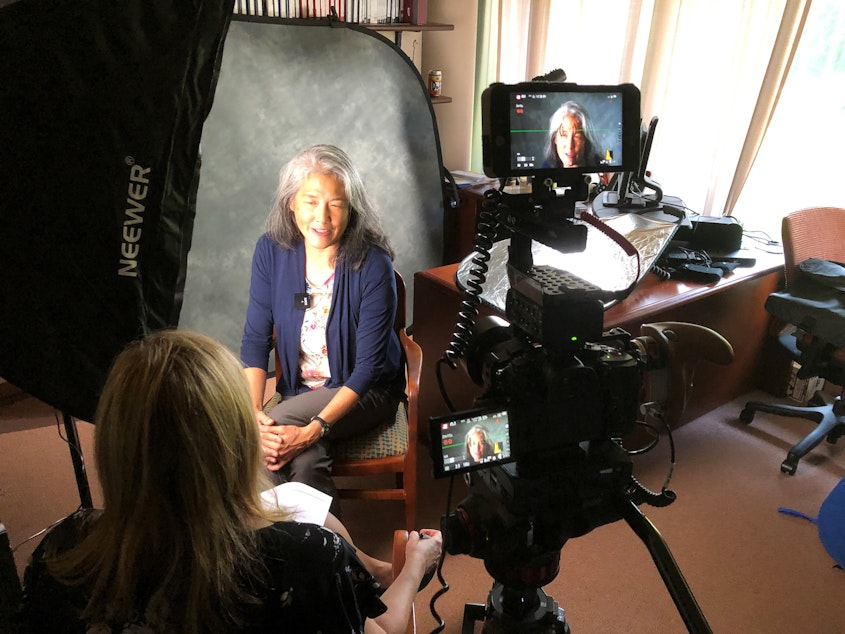
I had spent a long career covering a variety of issues, but my reporting had very seldom touched on mental health. To me, mental health topics felt complicated and a little intimidating. I was raised in a family and in a culture where mental health was not top of mind. I felt that I didn’t have the understanding or even the language to do justice to those stories.
That changed rather abruptly when the issue became personal. A member of my family experienced a serious mental health crisis, and I realized how little I knew. I found it incredibly difficult to find helpful resources and access treatment. It surprised me that even I, a journalist accustomed to rooting out information, could be so stymied in my search for solutions.
The fellowship was a key part of my crash course on mental health. I spent the year listening and learning. I had at my disposal a distinguished body of professionals, some of whom had worked for decades with Mrs. Carter on mental health advocacy. They held trainings on best practices and provided guidance on the complexities that often arise when reporting on people who have mental illnesses. My fellow “fellas” were also a great source of knowledge and support.
Sponsored
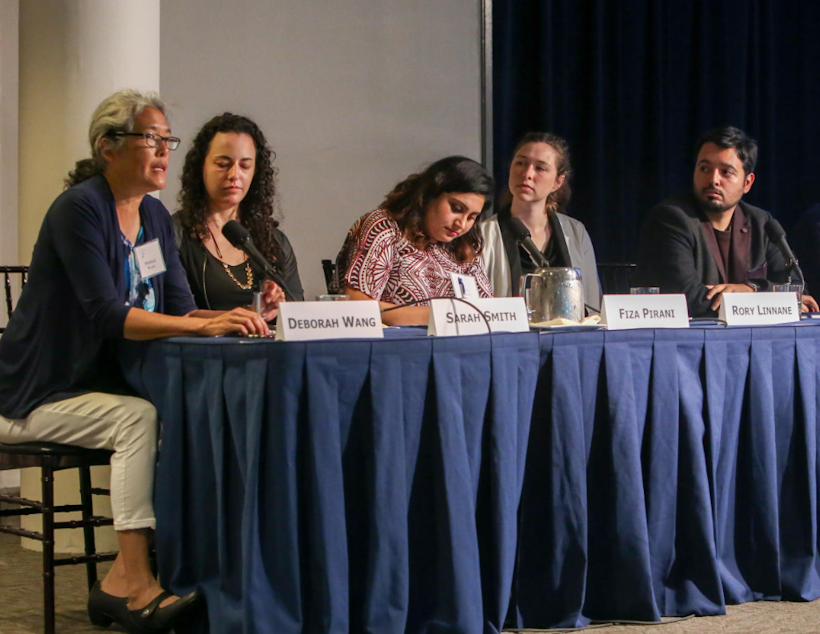
The stories I produced mainly set out to answer the questions that I had been asking myself: why is it so hard for families in the state of Washington to help adolescents who are in crisis? We looked at the history of the state’s unusual age of consent laws as well as ongoing attempts in the Legislature to amend them. We told the story of a family grappling with the tragic suicide of their son and also profiled teens who were working on suicide prevention. We looked at why it’s important to treat anxiety disorders in the very young.
For me, my fellowship year was transformative. It gave me some clarity about the complexities of reporting on mental health and it emboldened me to write and speak about the issues. Mrs. Carter's name was a powerful calling card. Her long record of mental health advocacy opened doors and I think convinced many people to trust me with their very difficult stories. I have since joined the program's advisory board, and have had the pleasure of working with other talented journalists on their reporting projects. The entire experience has made me a better journalist, and I think, a better person.
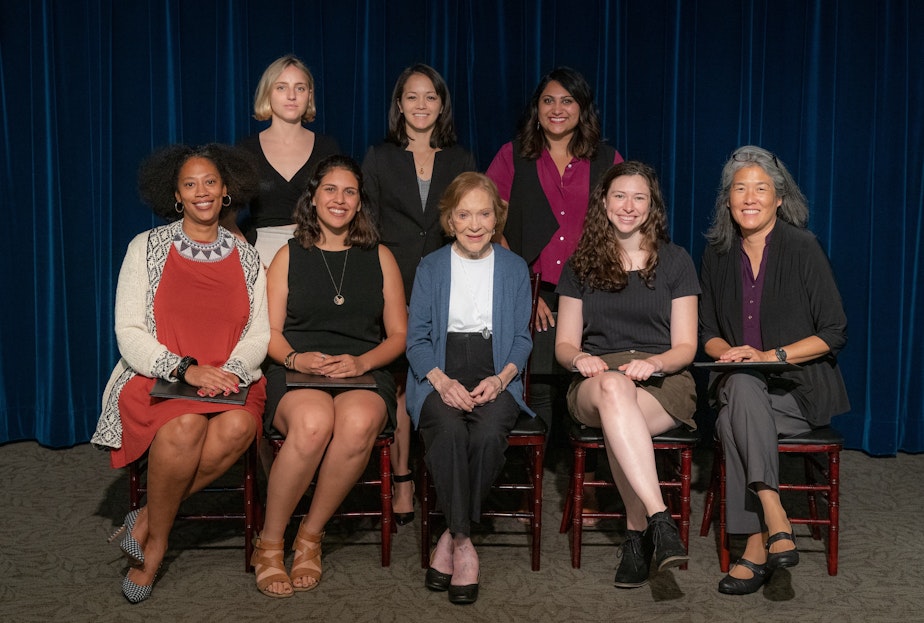
I can't say I got to know Mrs. Carter, but I was lucky to have had the chance to sit in the same room and learn with her and from her. She was inspirational. Over several days of meetings, filled with hours of discussions and presentations, the 91-year-old former first lady stayed at her seat, listening and taking notes. She hosted lunches for us and posed for photos. She appeared at an evening fireside chat with husband Jimmy. On the final day, she admitted to being “a little bit tired.” But she said she was looking forward to seeing us again.
Sponsored
Taking a deep dive into intergenerational trauma — KUOW's Liz Jones
Just like with any good story, there are clear turning points in a career. For me, my time as a Rosalynn Carter Journalism Fellow is one of them.
The fellowship offered me the time, mentorship, and community to take a deep dive into early childhood adversity and the roots of intergenerational trauma.
With this reporting, it took significant time to build trust with case workers and families who would eventually share sensitive and complicated pieces of their lives. It took time to gain insight and understanding about structural and social dynamics at play and to figure out who most needs to hear this story and how to reach them.
This project helped me ask better questions about how journalists approach mental health coverage, as well as so many other complex, social issues. The Rosalynn Carter Fellowship reoriented my work in a lasting way, and I’m grateful.
Sponsored
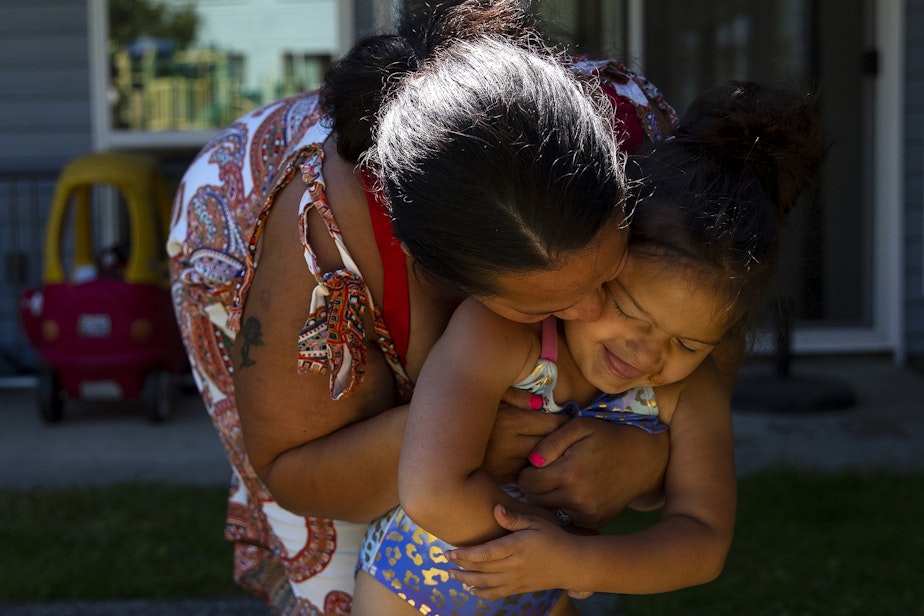
The fellowship resulted in a three-part series, "Swimming Upstream," a collection of stories that detail the mental health-focused journey of one Seattle-area family through crisis.
When Mrs. Carter passed, The Carter Center sent a message to a list of roughly 270 past and present fellows. What a powerful legacy of storytellers focusing their efforts on such an important subject that has the power to change so many lives.





